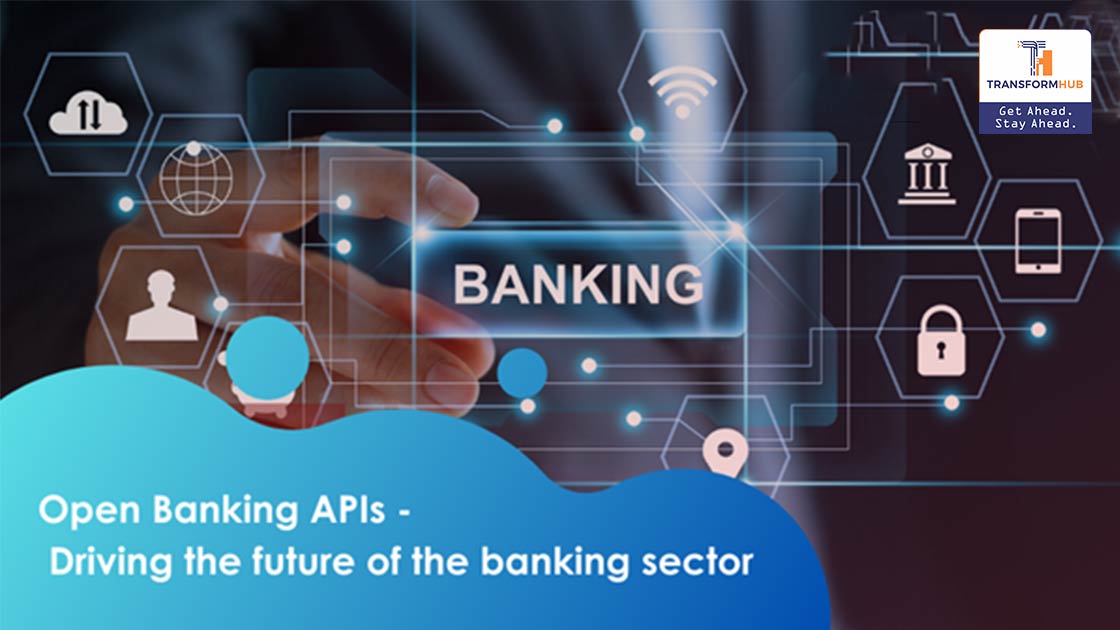How to Get Future-Ready with Fintech Apps?
Fintech is upending traditional banking and financial services with everything from mobile payment applications to robo-advisors and online lending platforms defining digital transformation solutions. As customers seek more customized and frictionless banking experiences, fintech solutions will continue to gain popularity and acceptance.
Trends Redefining the Future of Fintech in 2023
1. Growing demand for SaaS platforms
Fintech has undergone a commendable transformation, thanks to SaaS products and services. The worldwide SaaS industry, which is presently valued at over $100 Bn, is anticipated to continue increasing quickly due to its attraction among SaaS providers and clients.
Fintech companies may avoid the labor-intensive administration and installation of sophisticated software and infrastructure with the help of SaaS. Faster and better customer service provided by the SaaS system increases user and consumer satisfaction.
It is projected that in 2023, the number of prominent SaaS, low-code or no-code solutions, and micro-SaaS products will increase tremendously, thereby improving the performance of the finance industry.
2. Insurtech sector
The insurtech sector is poised to flourish in 2023 as more and more consumers jump on the digital bandwagon. The industry is making a lot of effort to increase customer participation and consumer trust. Communication is one of the most important factors in achieving this level of dedication.
To reach the expanding mass of consumers, several of the top businesses are exploring using vernacular language.
It is projected that the insurtech industry in Singapore would grow stronger as a result of its ability to leverage contemporary technology to its advantage and successfully address issues.
To grow with the witnessing demand, the top digital transformation companies in Singapore, including TransformHub, are now focusing on insurtech app development.
3. Artificial intelligence (AI) technology
The finance sector has turned to the use of AI due to reasons like the high volume of data and the low cost of processing power.
The financial sector benefits greatly from AI, including increased profits, increased production, and improved product quality. Most fintech companies employ AI successfully across a range of financial streams, including cybersecurity and customer service. AI is also changing the working and functions of online banking.
Significantly, insurtech has included cutting-edge AI technology for quick outcomes. For the purpose of resolving insurance complaints, many dispute resolution platforms for insurance have adopted AI.
For instance, competitive intelligence and compatible language processing in chatbots have been shown to be cost-effective alternatives. As AI analyzes more data, it also depends less on human aid. In 2023, emerging technologies will fundamentally alter the fintech sector. The success of any fintech company depends on selecting the best development partner among the top digital transformation companies in Singapore.
Fintech Applications' Most Advanced Features
TransformHub’s Future-Ready Fintech Solutions covers the infrastructure and UX-UI based design fronts, regardless of whether you want to construct a digital bank from the ground up or integrate fintech elements into your brand operations.
You may use e-wallets, digital transactions, loans, savings, and more. We'll explore the platform, choosing the best features and integrations for you, based on what you require. Just let us know what you need to integrate the best digital transformation solutions.
Here, we'll give a quick explanation of a few of the cutting-edge, future-ready features that fintech applications will have by 2023 and beyond.
1. Virtual banking assistant
Artificial intelligence (AI) and methods for natural language processing (NLP) are used by a virtual banking assistant to provide consumers with tailored financial services.
These virtual assistants may assist consumers with a variety of banking operations, including account enquiries, bill payments, and fraud warnings, without the need for human contact.
Any virtual assistant's greatest selling point is their capacity to offer consumers round-the-clock assistance so they may access financial services whenever and wherever they want. As a result, customer service agents have substantially less manual labor to do.
Based on a customer's spending patterns and financial objectives, virtual banking assistants may also provide individualized financial advice and insights.
Customers may now make data-driven financial decisions, resulting in improved financial outcomes and easier financial activities, thanks to these intelligent assistants.
2. AI for conversational customer support
By employing common language to respond to consumer inquiries in a customized, nimble, and context-driven way, conversational AI has completely changed the customer service sector.
Conversational AI systems can increase productivity without requiring manual involvement while contextually addressing consumer questions and issues.
The capacity to offer round-the-clock customer assistance is one of conversational AI's primary benefits for customer support. Customers may now receive assistance at any time, outside of work hours.
Based on their prior contacts with the business, conversational AI may also provide clients customized recommendations and solutions. Customer happiness, traction, and business conversion are all higher, thanks to customer-specific and context-aware communication.
Customers are more likely to remain loyal to a company when they feel that their unique needs are met in the context of those needs.
3. Predictive intelligence for security and fraud detection
For financial services and applications, predictive intelligence is essential for data protection and fraud detection.
Predictive intelligence systems may offer complete security measures to fintech solutions by using sophisticated analytics and machine learning algorithms to detect and prevent fraudulent activity in real time.
With the analysis of vast amounts of data, including user activity patterns, transaction histories, and other contextual data, it can spot possible security issues and fraudulent actions.
Traditional security techniques could overlook fraud trends and abnormalities, but predictive intelligence can find them. Intelligence inputs on unusual user behavior and use patterns are extremely helpful at detecting frauds early on and reducing the vulnerabilities and hazards that may otherwise result in financial loss.
By lowering false positives and negatives and sending security personnel immediate notifications, when possible, risks are discovered, predictive intelligence may help increase the accuracy of fraud detection.
4. Blockchain based transactions
In the fintech sector, blockchain technology is a significant trendsetter. Blockchain is a cutting-edge decentralized database system that may virtually eliminate instances of data breaches, data tampering, and data theft by managing financial data over many nodes.
Blockchain technology fits in seamlessly with industries where data security and transparency are essential needs.
The use of blockchain technology for digital currencies like Bitcoin and Ethereum is one of the most trimming areas in fintech.
These digital currencies provide a more secure and effective method of money transmission by using blockchain technology to record and verify transactions.
Another aspect of the blockchain-based system for enabling financial agreements through automated contracts that are coded is smart contracts.
5. Voice-activated banking
Due to its ability to facilitate transactions with the least amount of effort, voice-enabled banking has grown in popularity in the fintech sector. Finance apps with voice assistants let users use voice commands to access their bank accounts and financial services.
Voice-enabled banking has emerged as a prominent trend, assuring customer comfort and accessibility, thanks to the quick expansion and popularity of smart voice assistants and systems.
The popularity and growing momentum of voice-enabled financial assistants are largely due to their convenience. People may check their account balances, transfer money, pay bills, and handle other financial operations with only a few voice commands without having to sign into a website or app.
Accessibility for people with impairments, those with restricted mobility, and those who choose not to use a keyboard or touch screen can all be improved by voice-enabled banking.
Security issues with voice-enabled banking still exist, though. Reputable banks and financial institutions must adopt several extra security procedures and processes in order to overcome the security issues with voice-enabled banking.
6. Clever financial advisor
A smart financial adviser using machine learning (ML) and artificial intelligence (AI) algorithms may provide highly individualized financial advice and product suggestions. To offer individualized advice and suggestions, knowledgeable financial advisers can examine financial information including income, spending, investments, and savings objectives.
Skilled financial consultants may offer clients individualized guidance around-the-clock. Individuals may be able to accomplish their financial objectives more rapidly and make better financial decisions as a result.
You can always start with a financial planning website that will eventually transform into a smart advisor solution for investors in order to establish your position in the Fintech industry.
Clever financial advisers can also offer more trustworthy and accurate guidance than conventional financial consultants, who could be swayed by prejudices or lack of information.
These intelligent AI-powered financial advisers can mine pertinent insights, user preferences, and trends from enormous volumes of data, unlike conventional recommendation engines.
Contact TransformHub to Be Future-Ready!
It is reasonable to assume that the fintech sector will remain prosperous in 2023. The future of the fintech ecosystem will be redefined in part by the value of the user experience and the ability to respond quickly to regulatory changes.
Fintech demands innovation as well as trust and openness. Making the ideal financial design is therefore a significant problem. On the one hand, it must coherently and clearly show a vast amount of data. On the other hand, it takes just the perfect amount of inventiveness to win over users without coming off as forced.
The good news is that you're quite likely to accomplish all these objectives if you follow the preceding advice.
We are here to take complete accountability for your business requirements and deliver precisely tailored solutions for the same.
Get in touch with us today to begin working on your financial app development project.
Share this
You May Also Like
These Related Stories

Open Banking APIs - Driving the future of the banking sector

FinTech Innovations Impacting the Consumer Experience




